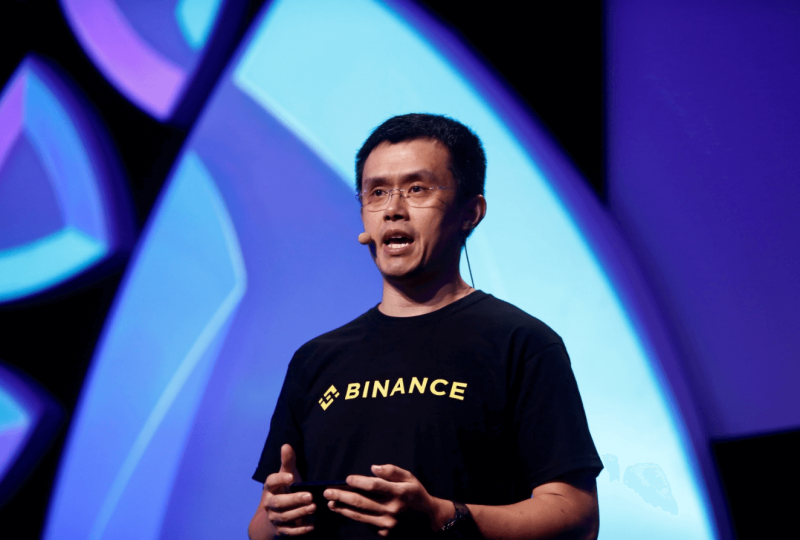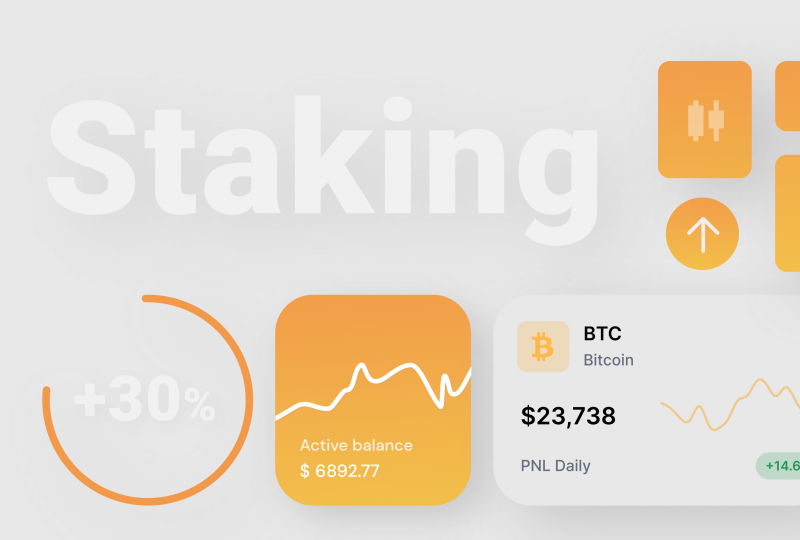Binance CEO Says It’s Time For Regulators to Establish Rules For Cryptocurrency Markets
Nov 17, 2021

Critics have compared the bitcoin market to the Wild West, and now a significant participant is calling for sheriffs to come to town.
Binance, the world's largest cryptocurrency exchange, believes that it is past time for global authorities to set crypto market laws. It issued a list of "ten essential rights for crypto consumers" this week, which it hopes will serve as a roadmap for negotiations with regulators, legislators, and other exchanges.
Crypto platforms, according to the business, have a responsibility to safeguard consumers and develop policies to avoid financial crimes, as well as a responsibility to engage with authorities and legislators to set rules to keep users secure.
The plea for regulation may sound weird coming from a sector whose popularity grew in part because it aspired to operate outside of government and other authorities' control. However, Binance CEO Changpeng Zhao, sometimes known as "CZ," believes that further regulation for the sector is unavoidable, and that this gives his firm a voice in the debate. It might also entice those who are still hesitant to invest in cryptocurrency.
"Most regulators across the globe are paying close attention to crypto this year, and many of them are interacting with us," Zhao added. "As a result, we believe now is the appropriate time" to issue a call for a worldwide framework.
"We believe that industry participants should have a place at the table," he added. "We also believe that some rules, if enacted in a vacuum, may lack practical considerations in how they are implemented, and that they are not implemented properly."
As cryptocurrencies have become more widespread, regulatory scrutiny has increased. Even though detractors struggle to grasp the utility of digital currencies established by non-governments, big enterprises, expert investors, and even the government of El Salvador are all buying in. They're expanding crypto's fan base beyond its early adopters, sending Bitcoin to a new high of roughly $68,991 last week, more than doubling in 2021.
Binance's push for regulation has some on Wall Street thinking about the path that firms have followed after becoming major winners in other innovative sectors.
"They're following in the footsteps of Uber and Lyft," said Gil Luria, D.A. Davidson's digital strategist. "Create a firm that is ahead of the game when it comes to regulations. Recognize that regulation will be beneficial when it reaches a certain magnitude, and then assist in shaping it."
Binance, according to Zhao, embraces restrictions "for a variety of reasons." One of the smaller reasons is selfish: in a controlled sector, only a few major players would survive. Smaller players are often omitted, which is sad for them."
If Binance's US firm eventually seeks to sell shares on a US exchange, which Zhao wants to do in the next few years, the move might prove sensible. Following its initial public offering this spring, a competitor, Coinbase, has already fetched a market value of roughly $74 billion on Wall Street.
Such wealth-generating prospects have attracted more new investors to crypto, as well as the attention of authorities.
"Right now, we just don't have adequate investor protection in crypto," Gary Gensler, chair of the Securities and Exchange Commission, said last summer in a speech, referring to it as the "Wild West."
"In certain uses, this asset class is riddled with fraud, frauds, and misuse," he stated. "How crypto assets function is surrounded by a lot of hype and spin. Investors are frequently unable to get thorough, impartial, and full information."
Analysts believe Binance will agree to submit transactions to US officials searching for money laundering and terrorism funding, among other concerns.
One of Binance's "basic rights" is stringent regulation of markets that offer "derivatives and leveraged products," which may be profitable but also potentially hazardous for investors.
According to Zhao, most authorities across the globe are concentrating on "know your customer" requirements, which require financial firms to verify the identities of those who use their services. They're also focused on consumer safeguards.
Even still, "different nations have various interpretations and meanings for these really simple phrases," Zhao explained. Anti-money laundering efforts in the United States, for example, are focused on preventing terrorist funding, but Chinese officials are more concerned with people transferring money out of the country.
According to Campbell Harvey, a Duke University finance professor who recently published "DeFi and the Future of Finance," regulators are catching up with complex and fast-moving technologies while attempting to strike a balance between protecting investors and not squashing or driving innovation to other countries.
The stakes are getting higher for doing it right. Some large institutional investors, including pension funds, are staying away from crypto due to the uncertainties around future regulation. And that's where the industry's possibility for even more money resides.
Given the complications, Harvey believes that creating a new body to supervise cryptocurrencies and the ecosystem surrounding them, rather than depending on a patchwork of regulatory agencies, is the best option.
"It's complicated," he continued, "and it doesn't fit many of the traditional regulatory frameworks."
Zhao, who claims to hold solely Bitcoin BTCUSD,-0.74 percent and Binance coin, believes that some aspects of the cryptocurrency realm resemble securities, while others resemble commodities or currencies. People may generate new tokens with just a few mouse and keyboard clicks, and the ecosystem is increasing by the day.
He compared it to the early days of the internet, when people were unsure what type of media it was. Is it a radio station? TV? Is there anything else?
"People may have a propensity to see crypto as a single asset," he continued, "which I believe is a little bit inaccurate." "Crypto is a foundational technology that has the potential to enhance many traditional asset kinds."




